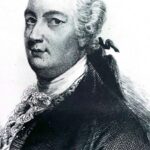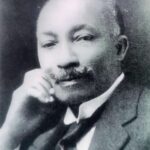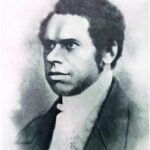NANA ATTAFUA
- 3 Min Read
Nana Attafua (18? – September 1927) contributed to the economic and social progress of Akyem Kotoku state, located about 45 mi (72 km) north-north-northwest of the port of Winneba in what is now southern Ghana, during his long reign, which extended over almost half a century.
During the first five years of his reign, Nana Attafua encouraged the development of the palm oil, kola nut, and rubber industries in his state. By the mid 1880s, Akyem Kotoku had become one of the leading producers of palm oil in the Gold Coast Colony. On his own initiative, he maintained a ferry across the Birem River at Nsuaem (modern Oda), the capital of the state, for the benefit of rubber traders who passed to and from the states of Asante to the northwest, Asante Akyem to the north, and Kwawu to the northeast. By 1884 such traders were regularly crossing the Birem River, a tributary of the Pra, via Nsuaem on their way to Saltpond, east of Cape Coast, via Akyem Swedru to the southwest of Nsuaem, or to Agona Kwanyako, near Agona Swedru, where Accra and Winneba traders were always waiting to buy rubber, Nana Attafua also encouraged his subject to cultivate cocoa during the first decade of the 20th century.
Although a strong adherent of the traditional religious system, and an avowed opponent of Christianity, Nana Attafua supported both mission- sponsored and government-sponsored education. In March 1883, he sent four of his subjects to the British governor in Accra. Sir Samuel Rowe (term of office 1881 – 1884), with a request that one of them “be put to school for literal instructions.” By 1892 there was already a mission school at Nsuaem, and when in 1895 the government established a boys’ school there, Nana Attafua enrolled four of his sons, all of whom later entered government service as school teachers. In 1902, H. M. Hull, Secretary for Native Affairs in the Gold Coast government, reported him to be “popular and well respected by his subjects.”
The rapid social and economic progress attained by Nsuaem under Attafua’s rule led to the stationing of a District Commissioner there in 1921. Nsuaem, his capital, was renamed Oda in 1922.
Nana Attafua rendered loyal service to the British colonial government, taking part in the Asante Expedition of 1896, and in the Yaa Asantewa War in 1900. During World War I (1914 -1918), he and his people contributed generously to war charities.
In recognition of his services, the colonial government awarded Nana Attafua a medallion in 1896, and the King George V Medal for Native Chiefs in 1922. Recommending him for the latter award, Sir Gordon Guggisberg, British governor from 1919 – 1927, described him as “a rare surviving example of a ‘Bush Chief’ of the old school of typically African astuteness, sturdiness, and common sense.” Nana Attafua died in September 1927.
R. ADDO-FENING





